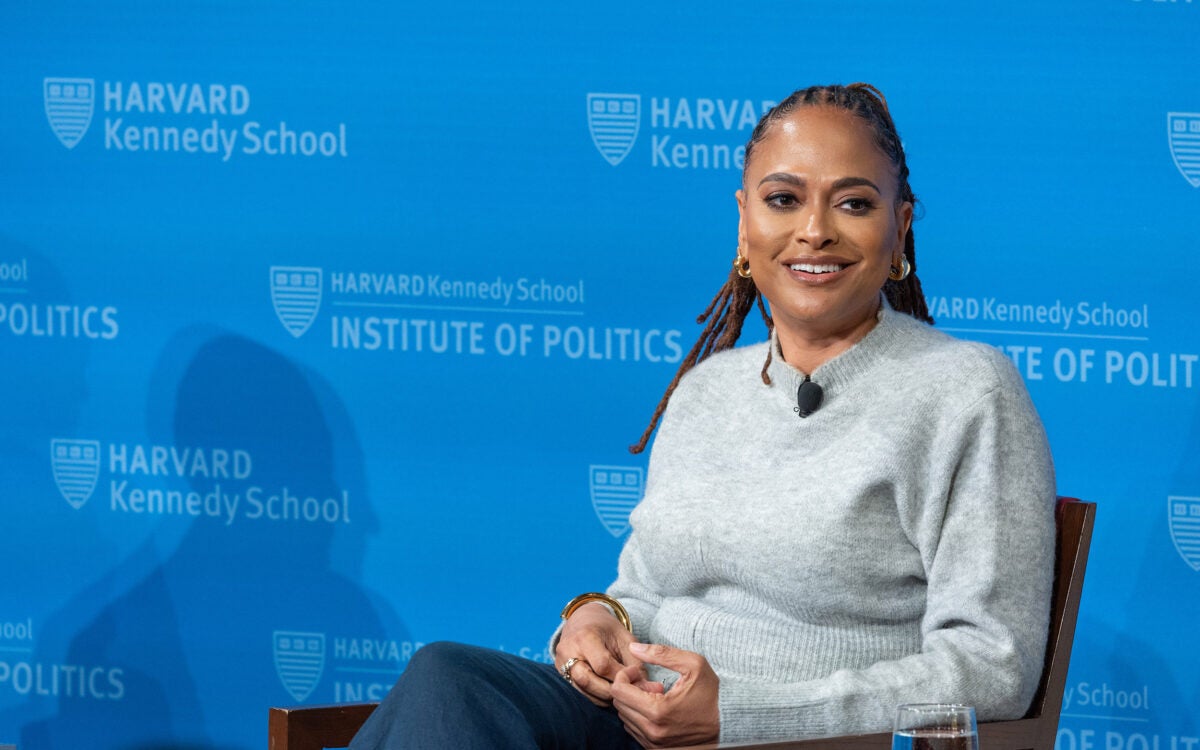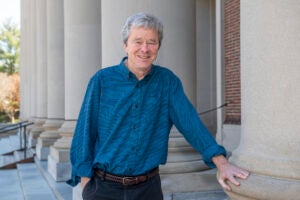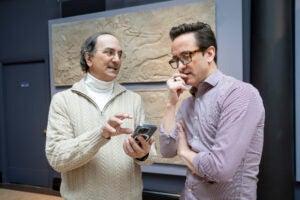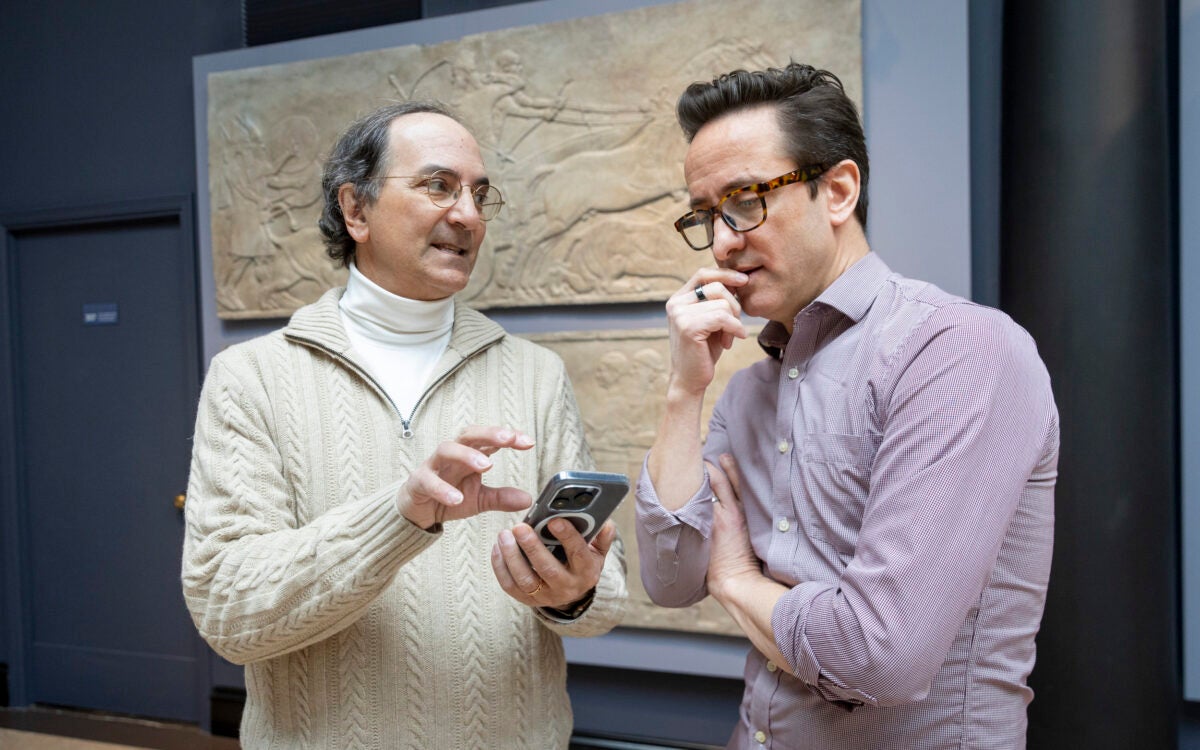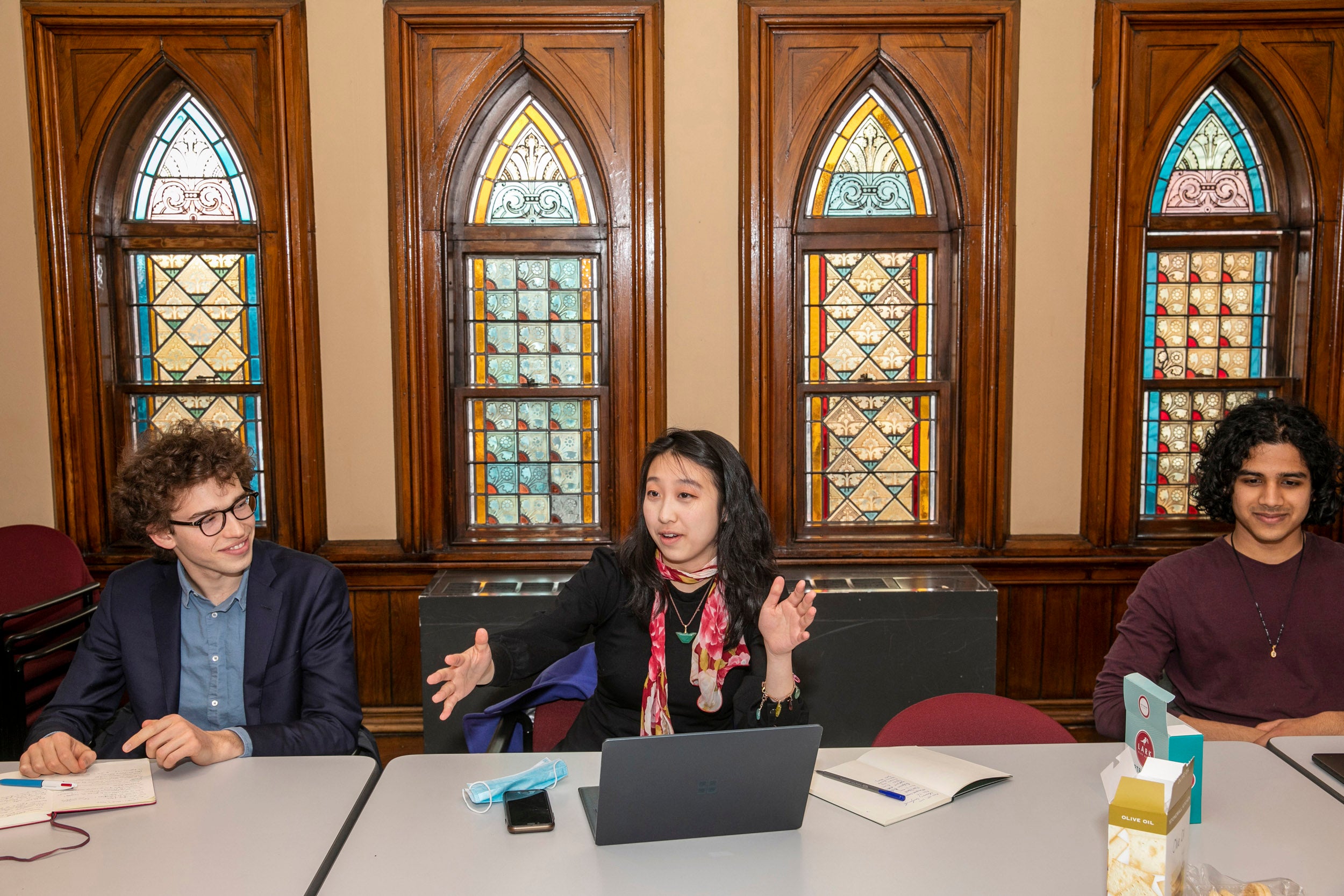
“The goal of the salon is to kind of examine what that might look like. Are there fundamental differences between two fields that prevent them from working together?” asked Julie Heng (center). The salon was founded by Heng, Henry Haimo (left), and Chinmay Deshpande (right).
Photos by Jon Chase/Harvard Staff Photographer
Bringing 17th-century Enlightenment tradition to Memorial Hall
Undergraduate Salon aims to revive ‘age of conversation,’ particularly about bridges between sciences, humanities
During her first year on campus, Fiona Pollack ’25 enjoyed meeting new people and talking about life at Harvard over a meal at Annenberg. But she wanted to delve deeper with like-minded students into the intellectual topics she was learning about in class.
She found that space in Memorial Hall, where the Harvard Undergraduate Salon for the Sciences and Humanities began meeting in February.
The group, founded by sophomores Julie Heng, Henry Haimo, and Chinmay Deshpande, is dedicated to informal yet rigorous discussions of issues ranging from ethics in designing artificial intelligence to the value of public-facing science communication.
“The salon has a different energy because the people who joined it really want to have very intense intellectual conversations, grappling with methodology and epistemology and the big questions of different academic disciplines,” said Pollack, one of about a dozen regular attendees. “That’s what I came to Harvard to do, and this has been the best place to do that.”
The group holds a students-only session once a week and a second weekly meeting with an invited faculty guest, open to all Harvard affiliates. Heng said a primary goal of the group is to build bridges between the seemingly disparate worlds of the sciences and humanities.
“In conversations that I had with other students, it seemed quite obvious that there is this sometimes-artificial dichotomy, a fissure between the sciences and the humanities,“ said Heng, who grew up in Ann Arbor, Michigan, and Windsor, Ontario, and studies integrative biology. “But there’s a lot of opportunity to bridge that gap.”
“The goal of the salon is to kind of examine what that might look like. Are there fundamental differences between two fields that prevent them from working together?” added the Kirkland House resident. “Or are there different case studies and projects that we might be able to infuse a different type of critical thinking into? It’s very exciting that we now have a forum to debate those questions.”
Heng was inspired by the namesake 17th-century French Enlightenment gatherings, which usually included art, music, and casual conversation on a variety of subjects. The faculty guest list this semester exemplified that diversity. Recent visitors included James Robson, James C. Kralik and Yunli Lou Professor of East Asian Languages and Civilizations; Woodward Yang, Gordon McKay Professor of Electrical Engineering and Computer Science; and Sheila Jasanoff, Pforzheimer Professor of Science and Technology Studies at the Harvard Kennedy School.
Flanked by Anna Yu Wang, Ph.D. ’23, and Ben Porteous ’22, Professor James Robson joined the salon as a faculty guest.
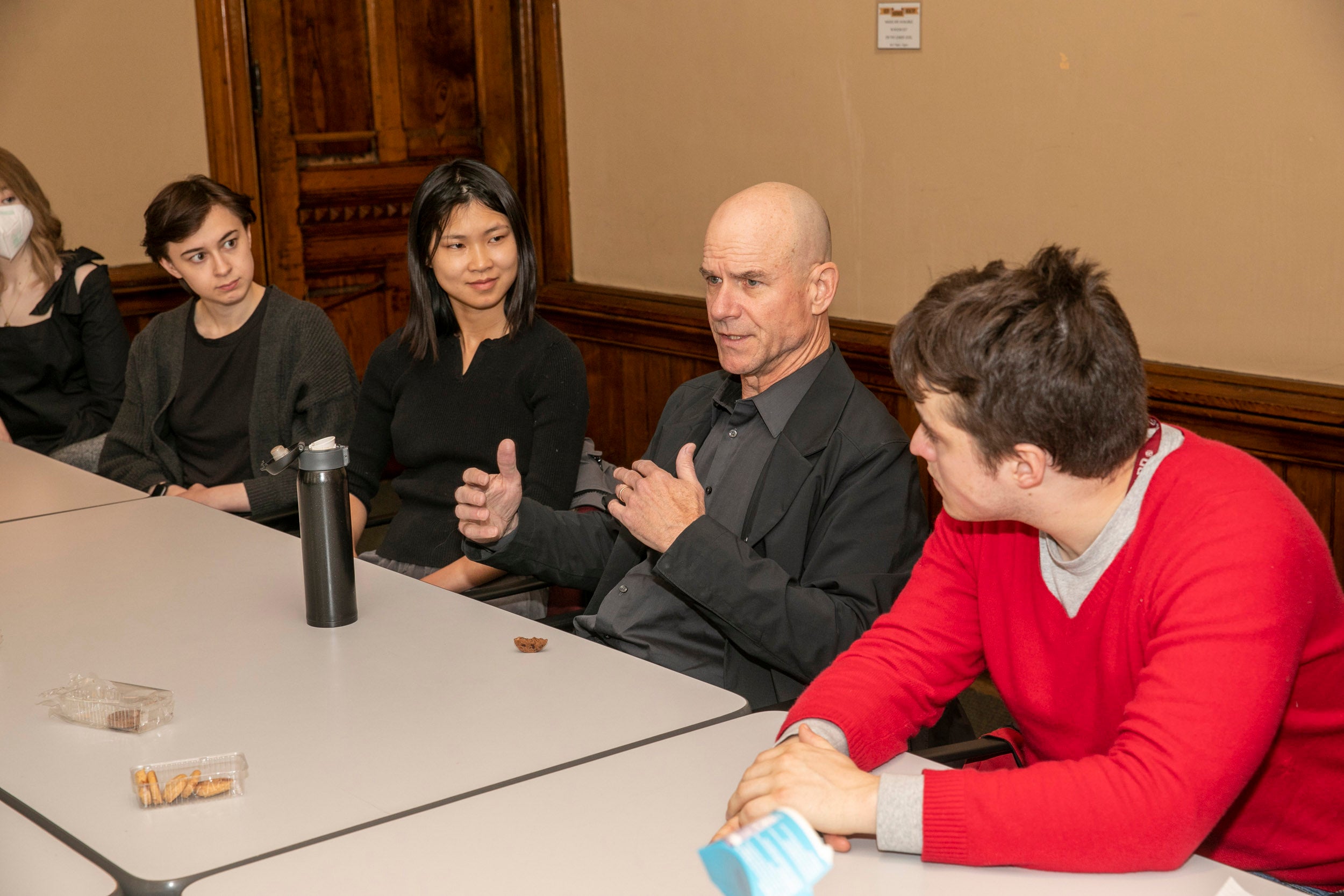
While the contemporary Harvard salon is limited to conversation, the informal organization of each hourlong meeting was part of the design, said Haimo, who noticed that many of his peers’ busy schedules left little time for casual interactions on any subject.
“Not every type of exchange needs to be so structured,” said the history concentrator from New York. “Especially being at Harvard in person, we liked the idea of bringing out a spirit of learning.”
The intensity and passion of the discussions can sometimes lead to disagreement, but the leaders noted that members are dedicated to civil engagement.
“What really helps in managing disagreement is the fact that we have some people who come to every meeting, so we have the ability to build deeper relationships between ourselves,” said Deshpande, a joint concentrator in neuroscience and philosophy who also comes from New York. “We all have an interest in remaining respectful.”
At a recent meeting with Jasanoff, Heng started by asking a set of questions put to every guest: What is the relationship between the sciences and the humanities? Where are they going? And what should be done about that?
From that starting point, Jasanoff told the students about her pioneering research in science and technology studies and the development of institutional support for the field. The group also discussed the role of power in knowledge production, and the benefits and challenges of academic specialization. The conversation was free-flowing and multifaceted, leaving members with more questions to explore — just as the founders intended.
The group plans to meet until finals period, with plans to publish an end-of-year analysis of the experience. Pollack looks forward to meeting even more conversation partners next semester, including a dream guest she hopes to lure: Johnstone Family Professor of Psychology Steven Pinker.
“He does in his scholarship the things we’re trying to do in the salon, crossing disciplinary boundaries to try to answer really big questions,” she said. “Professor Pinker, if you read this, come to the salon.”
